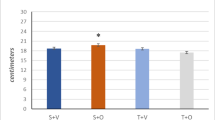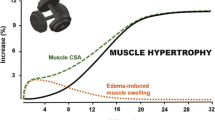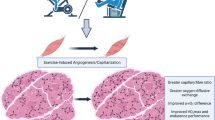Abstract
We have used a new approach to study the effects of overload on skeletal muscle phenotype in mice. The method used avoids any traumatising contact with muscles and the inflammatory reaction that this may provoke. Blocks of lead embedded in silicone were inserted under the skin of the lower part of the back. After 1 month, a 17% hypertrophy was found to have occurred in the tonic soleus muscle, but no change was observed in the fast-twitch extensor digitorum longus (EDL) muscle. The main effects on the contractile properties of the soleus muscle were a decrease in the tetanic relaxation rate and a reduction in the maximal velocity of shortening. Immunohistological analysis of the soleus muscles revealed an increase in the proportion of fibres that express myosin heavy chain (MHC) 1, from 54.2% to 73.9%, with a reduction in the proportion of MHC2a-positive fibres, from 45.8% to 30.2%. These changes were accompanied by an increase in the proportion of fibres that express the slow type of sarcoplasmic reticulum calcium pump (SERCA2a), from 61.8% to 84.7%. In EDL muscles, overload induced only minor changes. Thus, this method of overload affected the soleus muscle in particular. The observed changes in the control of muscle contraction were significantly larger than the changes in typical myofibrillar properties that were observed. These results indicate that there is a temporal dissociation between the relative expression of MHCs and SERCAs.
Similar content being viewed by others
Author information
Authors and Affiliations
Additional information
Received: 16 April 1999 / Accepted: 14 June 1999
Rights and permissions
About this article
Cite this article
Awede, B., Berquin, A., Wuytack, F. et al. Adaptation of mouse skeletal muscle to a novel functional overload test: changes in myosin heavy chains and SERCA and physiological consequences. Eur J Appl Physiol 80, 519–526 (1999). https://doi.org/10.1007/s004210050630
Issue Date:
DOI: https://doi.org/10.1007/s004210050630




